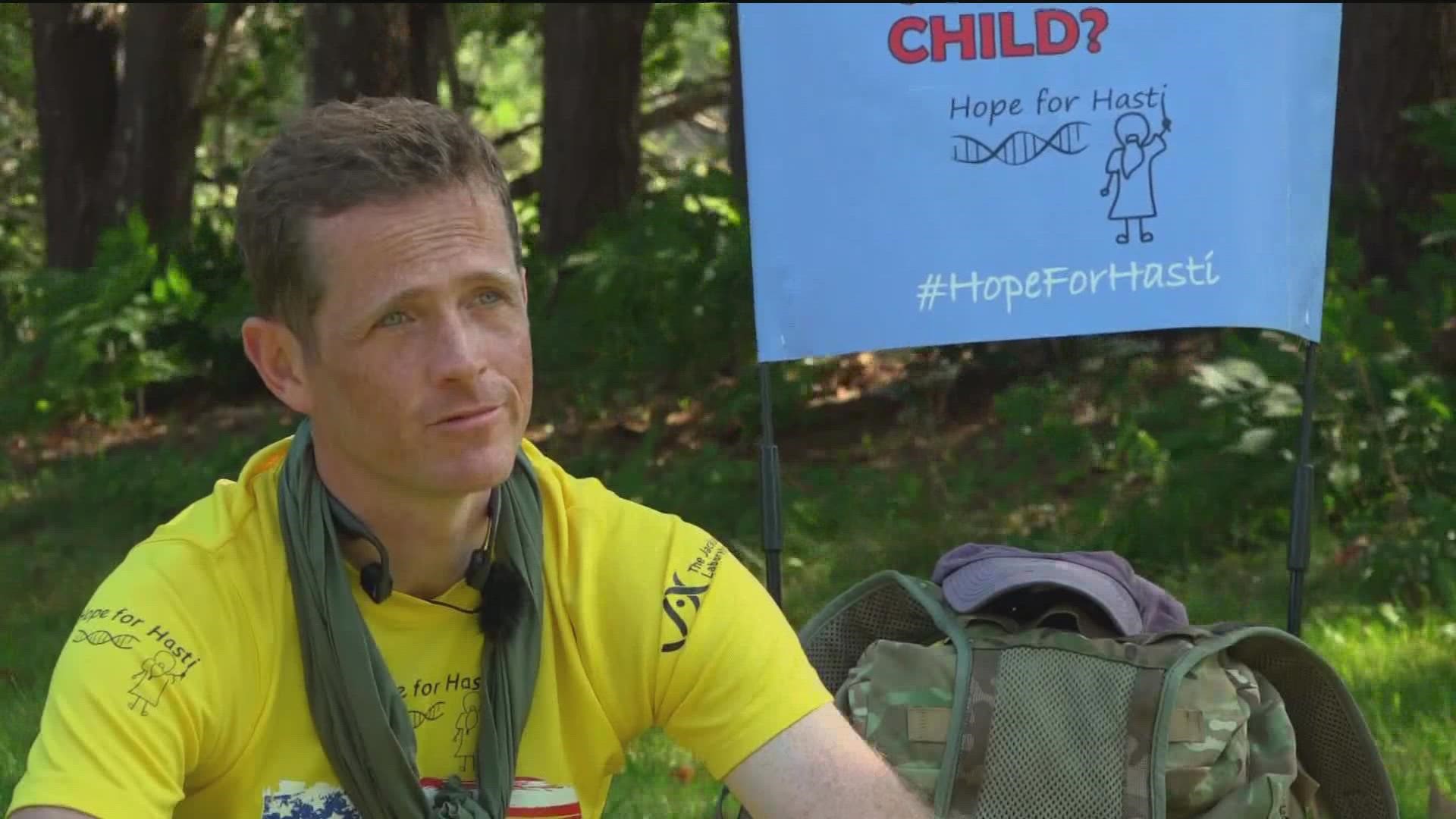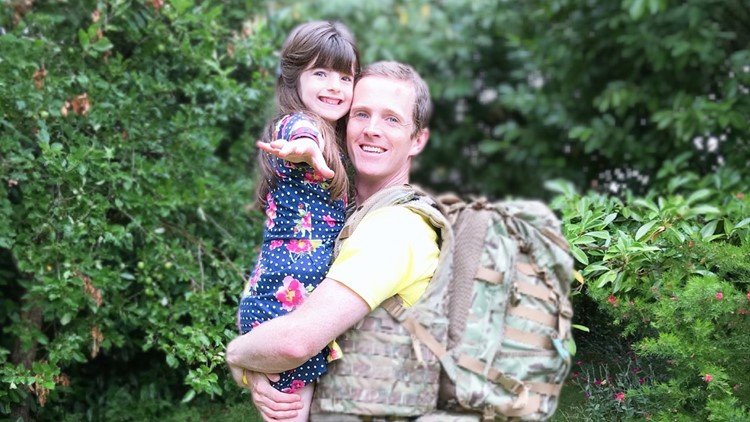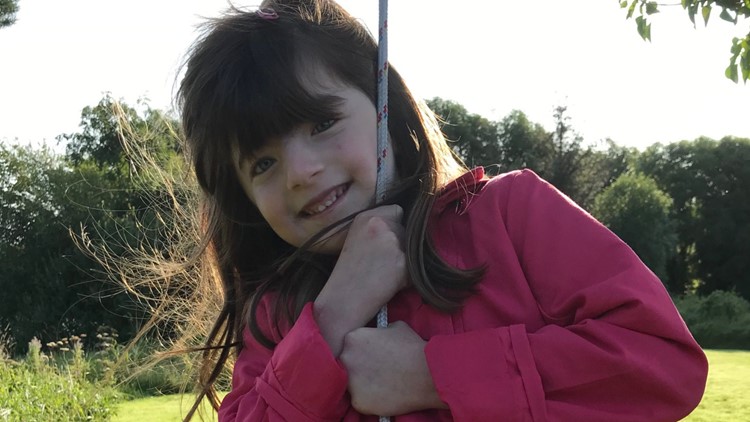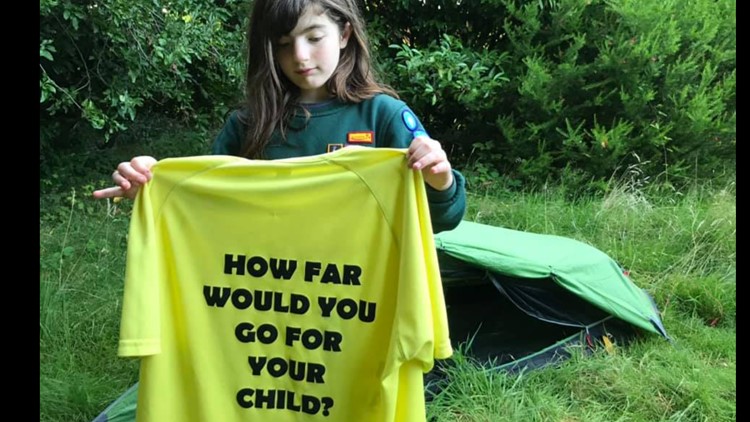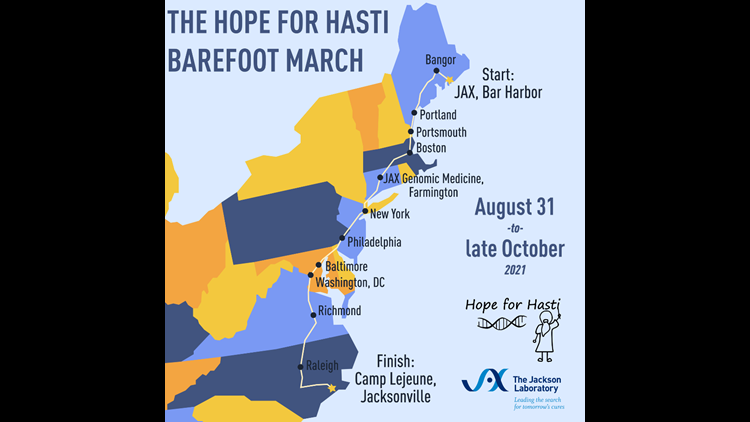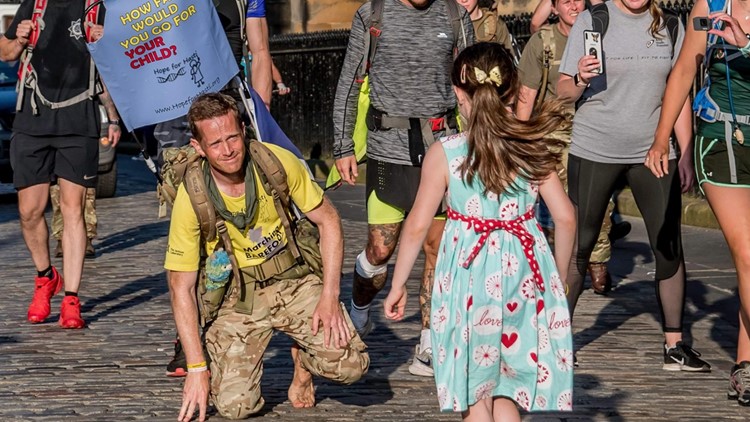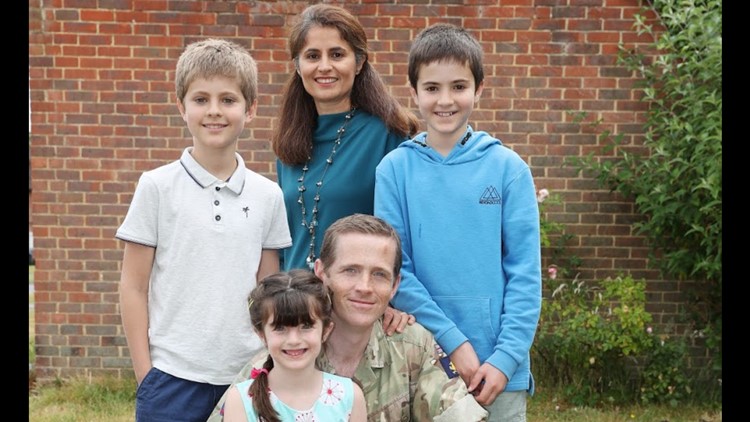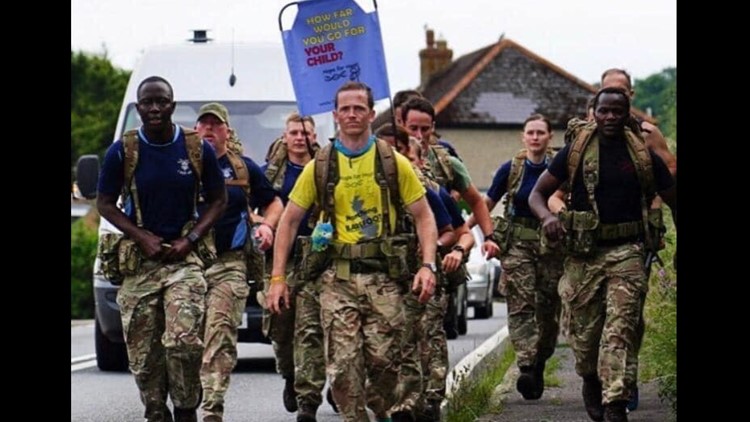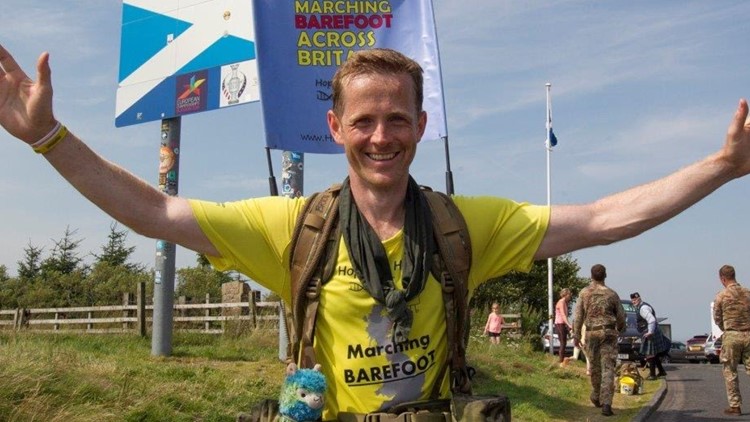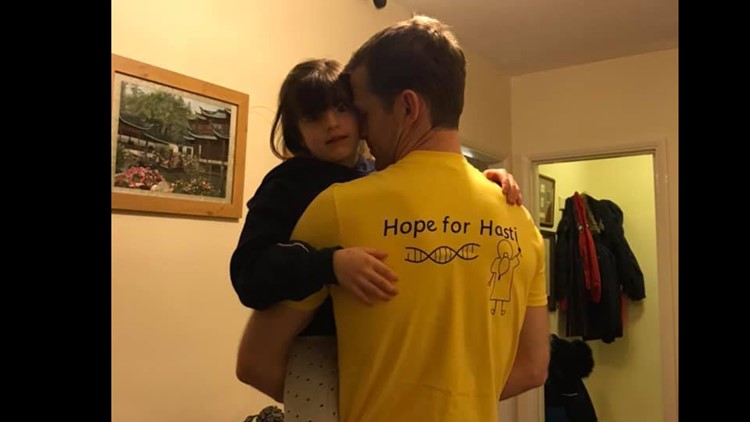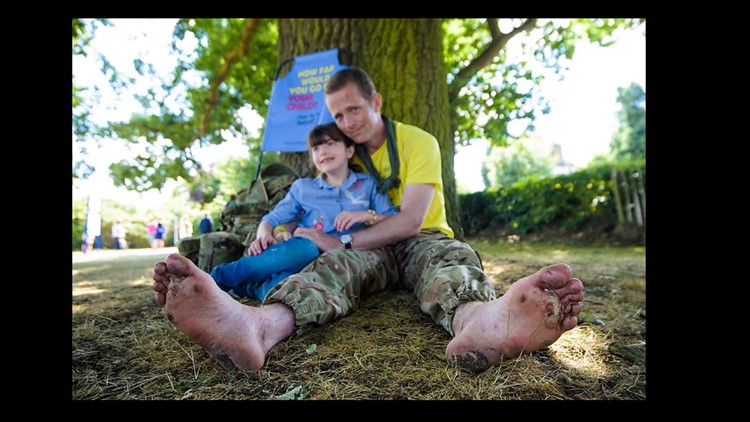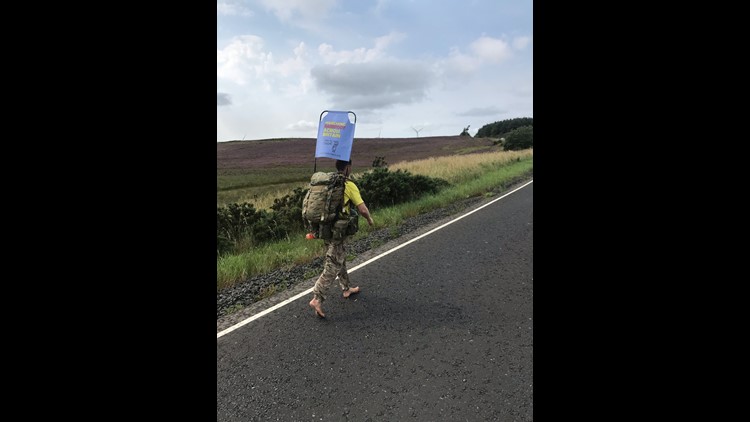BIDDEFORD, Maine — How far would you go for your child?
Chris Brannigan is willing to walk 1,200 miles barefoot for his young daughter Hasti.
Why is he doing it? To raise money - a lot of money - for an experimental treatment for his 9-year-old daughter who has a rare disorder called Cornelia de Lange Syndrome or CdLS.
On Tuesday, August 31, Brannigan began the longest journey of his life, starting at The Jackson Laboratory in Bar Harbor where gene therapy is being developed that might help his daughter. CdLS is caused when one gene mutates and results in a developmental disorder, growth delays, often malformations of limbs, and other physical abnormalities. "Ultimately it means that Hasti will never be able to achieve an independent life and it comes with a whole list of medical complications, cardiac problems, cognitive disability, etc.," said Brannigan.
Along with his wife, Brannigan founded the charity Hope for Hasti three years ago after their daughter was finally diagnosed with CdLS in an effort to raise $3.5 million to pay for a clinical trial of a treatment that could possibly help Hasti.
"That is a huge figure for a normal family like us. We don't have anything like that kind of money," said Brannigan.
The British father has been working with The Jackson Laboratory, a biomedical research institution, that is currently testing a specific gene therapy in mice. The gene therapy is specifically tailored to the gene mutation that Hasti has.
Hope for Hasti
Cat Lutz, Ph.D., director of the Rare and Orphan Disease Center at The Jackson Laboratory, said there is still much work to be done. The gene therapy needs to be tested for efficacy and safety. After that, it will then need FDA approval before it is ready for a clinical trial for Hasti.
Brannigan is not losing hope or wasting time. Last year, the British soldier walked 700 miles barefoot across the United Kingdom and raised $1 million. Brannigan said that he and his wife decided at the start of their journey that they would not take any funds from their charity to pay for the walks, so to keep costs down, Brannigan carries a 50-pound backpack with all the gear he needs to camp along the side of the road, though he said most nights that he has been in New England people offer him a place to stay.
"I'm doing the walk alone. I don't have any support crew, there's no one following me supporting me and I'm doing it barefoot because as a rare disease family it's often a very lonely experience," explained Brannigan.
You can follow Brannigan's journey here. To donate, go here.

